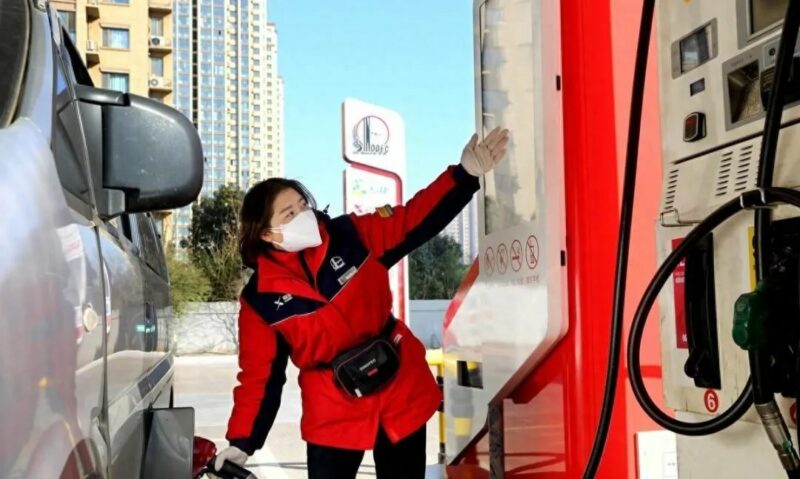Anticipated decrease in China’s fuel prices marks a shift in 2024
In a notable development, China is expected to witness its first fuel price decrease in 2024, signaling a departure from the established trend. Scheduled for January 17th at 24:00, this adjustment comes under China’s oil pricing system, which was introduced in May 2009 and empowers the National Development and Reform Commission (NDRC) to regulate fuel prices based on global crude oil averages.
Under this pricing system, adjustments typically occur periodically, providing a mechanism for responding to upward and downward trends in international oil prices. An in-depth analysis of price statistical data reveals that the crude oil change rate on the 6th working day (January 12th, seven of the ten working days) is approximately -1.15%. This projects an estimated reduction of 60 yuan per ton in fuel prices, and further predictions suggest a reduction in fuel prices by 0.05 yuan/liter to 0.06 yuan/liter, deepening the expected decrease from the previous working day.

Based on this data, consumers anticipating relief from prolonged increases may finally see a positive shift. The significance of this adjustment extends beyond domestic factors, considering the broader international market dynamics and changes in global crude oil prices. The outcome will likely impact both consumers and broader economic trends.
This potential drop in fuel prices comes at a time when global economic conditions and geopolitical factors contribute to the uncertainty of energy markets. Last week saw a 1.3 million-barrel increase in U.S. petroleum inventory, exerting notable pressure on the market. Yet the Chinese data still suggests price decreases are on the horizon.
As China anticipates its first fuel price adjustment of 2024, there is a broad sense of anticipation for a shift towards lower fuel prices. While confirmation is slated for next week, this statistical analysis, which indicates a potential decrease, provides a hopeful sign for Chinese consumers as well as ICE vehicle manufacturers who are competing with rising sales of new energy vehicles, which accounted for 30% of total sales in 2023. Whatever the case, it will be interesting to see how petrol-powered vehicle sales will be affected by falling oil prices.
With this changing landscape, nationwide vehicle owners and potential buyers are faced with decisions in both driving dynamics and the possibility of switching to alternative transport solutions and NEVs.
No related articles available.
